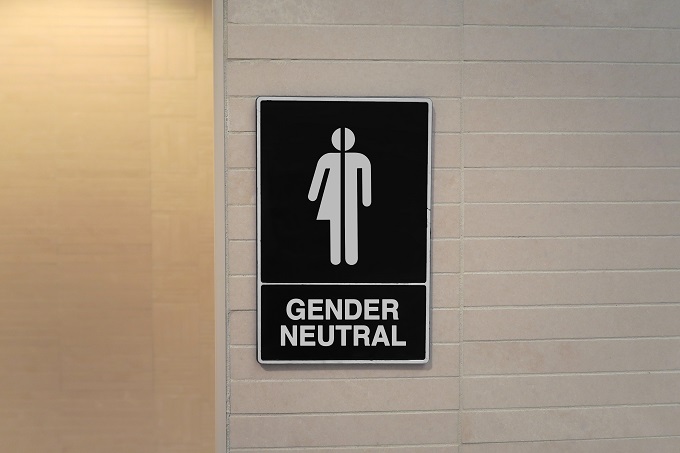
© John, Adobe Stock
The National Council of Women of New Zealand (NCWNZ) released the results from the 2019 follow-up to its 2017 Gender Equal NZ Gender Attitudes survey. The research, undertaken every second year by Research NZ, aims to provide an ongoing gauge of attitudes towards gender in Aotearoa New Zealand this year’s results reflect any change since the 2017 #MeToo phenomenon.
Interestingly, while 77 percent of respondents stated that school lessons should include education on gender diversity. Almost one quarter of respondents either disagreed with (11%) or were unsure (13%) of educating on gender diversity in schools.
While the 2017 results showed that most New Zealanders recognised gender equality as a fundamental right for all, there was also a pocket of New Zealanders with outdated and old fashioned views about gender stereotypes. The 2019 results provide the opportunity to see whether attitudes have shifted, and in which areas, but the findings have surprised NCWNZ president, Lisa Lawrence.
She said: “We thought we would see a positive shift in the public’s attitude on gender. Despite global events like #MeToo and the #TimesUp movement, this attitudinal progress and shift in focus on gender equality is not reflected in the recent survey results.”
This is a concerning result which requires attention because it drives the core beliefs that underpin gender inequality.
“While the large majority of New Zealanders (80%) believe gender equality is a fundamental right, in both 2017 & 2019 surveys, 20% of respondents did not agree with this point of view, which cannot be dismissed as an insignificant percentage of the population.”
At a high level, the 2019 survey recorded a significant shift in the percentage of New Zealanders believing that ‘gender equality has for the most part been achieved’ (42% in 2019 compared to 30% in 2017). However, looking at this in greater detail would suggest that little is considered to have been achieved in the range of specific areas covered by the survey.
This suggests that opinions on gender equality being achieved is based on a perception, possibly driven by events which have occurred in the interim, rather than actual outcomes in specific areas.
More respondents this year considered New Zealand was doing well with respect to gender equality in the New Zealand Parliament (56% in 2019 and 48% in 2017) – likely due to the change in Prime Minister in between surveys.
However, the three areas in which the smallest percentage of respondents considered that New Zealand was ‘doing well’ with respect to gender equality were: Senior management (31%), The armed forces (35%), and The welfare system (36%). In fact, over one-third of respondents rated the gender equality record in senior management as poor (36%).
There were concerning shifts in attitudes towards sexual violence, with significantly more respondents in the 2019 survey agreeing that, ‘false rape accusations are common’ (35%) compared with 29% in 2017.
“This is a concerning result because it shows that the ‘false accusation’ myth is not only persistent, but growing – despite the reality being very different. The reality is that under-reporting of rape is statistically a far larger problem than false accusations, and just as damaging to people’s lives,” says Lawrence.
Sexuality education is a compulsory part of the Curriculum for New Zealand secondary schools, and the Ministry includes consent as one of many topics to prioritise on learning pathways. However, there has been controversy around how this should be delivered: government funding for the ACC’s Mates and Dates programme came under fire for being an outsourced standalone programme that many teachers felt was insufficient and unsustainable.
A group of health and education experts labelled it “irresponsible” in 2018, lead by Katie Fitzpatrick, University of Auckland; Jackie Edmond, Chief Executive Family Planning New Zealand; Alison Green, Chief Executive Te Whāriki Takapou; and Rachael Dixon, The New Zealand Health Education Association (NZHEA). Also in 2018, on the back of #MeToo, groups of students and even the GirlGuiding NZ Ranger Advocacy Panel hit headlines with calls to intensify the consent component of sexuality education as a compulsory, long-term integrated programme that explores rape culture in particular. At the time,the Rape Prevention Education Whakatu Mauri Trust executive director Debbi Tohill told The Herald that only a third of Auckland secondary school provided education on sexual consent.
The Gender Attitudes survey also asked respondents about their attitudes towards the LGBTQI+ community. Most respondents stated that they would be comfortable with gay and bisexual men and lesbian and bisexual women being part of their immediate family, one of their friends, a work colleague, their doctor, their teacher, etc., (between 76% and 82%).
However, fewer respondents said they would be comfortable with trans women and trans men in most of these situations (between 59% and 69%). These results indicate there is still progress to be made in LGBTQI+ rights, particularly trans rights.
The much-delayed English draft curriculum is now out for consultation, generating discussion from teachers.
Research from AUT demonstrates arts, culture and recreation have positive impacts on all aspects of…
How effective has the school phone ban been in achieving its aims? Researchers from the…
School camps and excursions deliver hands on learning experiences, helping to consolidate classroom learning.
Innovations in AV technologies present new opportunities to engage with students. We look at how…
A new report from the University of Auckland’s Our Voices Project asks young people what…
This website uses cookies.